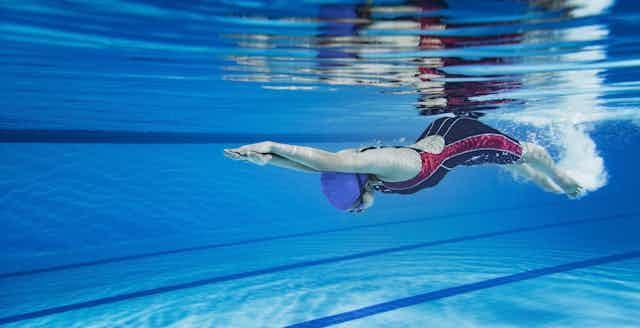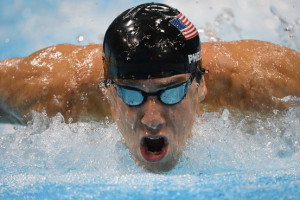Abhyāsa Series-1: Approach
Abhyāsa (Sanskrit: अभ्यास): abhyāsa is one of my favorite words in Sanskrit. It appears in Yoga Sutras of Patanjali and also in Bhagavad & Uddhav Gita.
Abhyasa means Practise in Sanskrit.
prounouced as abh-ya-sa
https://www.youtube.com/watch?v=2xWL9CVdmkk
---------------------------------------------------------------------------------------------------------------------------------------------------------------
The Practicing Mind
https://www.amazon.com/Practicing-Mind-Developing-Discipline-Challenge/dp/1608680908
This was the first book, I was astrally inspired to read before starting my formal yoga training in the astral dimension.
This book set the foundation stone back in 2017 till today towards yoga for me.
This is a small simple book, the author is a piano/music teacher and he collects a bunch of anecdotes to present a thematic description of how practice and mindfulness should be.
The author does mindfulness meditation and he installed certain Zen meditation energy in that book. One will get instantly calmed when one reads that book (imbibe that energy). I had several anxieties when this book found me and I was at the lowest point in my life with nothing in my hand or pocket, this book calmed me.
It does not speak about Yoga or anything close by, he encourages meditation and mindfulness but he gives an extraordinary overview of how practice should be.
This book was written for sports athletes or practitioners. I took the energy, and techniques and applied them to yoga. This book is my secret to tremendous success in my practice.
Several anecdotes are my favorite but my most closely guarded secret favorite in that book is the swimming story.
- In my own words, when a swimmer swims in Olympic competition, he is busy paddling his feet and aggressively hitting his arms in the water to move forward.
- Now, does he have time/ energy to think about others, or what will happen if he loses?
- He does not even have time/ energy to think where his opponents are in the race, he may see in the edge of his eye once a lap but he can't keep looking after every 3-4 swims.
- Now even subtler, there is no mind space for all these thoughts.
- This is even more important, If he gives space to such thoughts in mind then the swimming intensity will take a hit. He can't afford to lose for these trivial, non-value added thoughts. This is the secret.
This approach has been my biggest boost to all my practice. When I remove my shirt and put on a loin cloth and blindfold. That's a physical-subtle trigger to enter into a zone.
As I do breath infusion practice, thoughts keep coming and I keep practicing. I practice so much by applying the above-mentioned swimming technique, several times, I don't know what the time or what asanas I even did.
To perfect this technique, I went to my apartment swimming pool (5ft deep, I am 6ft, so I don't drown) and started swimming without any help. In my past lives, I have swam enough in north-Indian rivers. I paddled so damn hard till I instinctively pick up the technique again in this life. My then roommate who passed by, saw that I was paddling so hard and not moving, he came and said just bend your knee. That's it I moved like a fish now.
From then on, I swam like 3-6 laps (each lap 25ft, not very big, it was a small pool), to perfect this technique. I kinesiologically trained my psychic with this technique of mindfulness for 3-6 weeks and now combined that body movement-mindfulness with breath infusion with asanas to keep the attention within the body and reject the thoughts as they arise.
Note: I did swimming myself to get a complete understanding of the technique (this is where the author stops and the reader begins), not to master swimming. I never swam again after getting hold of the technique. Beyond certain casual swimming, the body has to hold certain carbon dioxide (Apana), when you do breath infusion body displaces Apana with prana and your body cannot do long-range swimming.
This is my treasured technique. Thoughts come during meditation but not so easily during breath infusion.
I in fact do a lot of mediation during breath infusion itself that I don't know what asana I am in or if my loin cloth is still in my body. I am "One" with my practice, there is no second state in it.
Coming to meditation (samyama), I have to find another technique. This swimming or kinesiological training will not work with the mind so much. Mind or buddhi is super subtle and needs an even more subtle technique.
I did all these techniques (below) for effective internalization. It worked wonders for me. This is from my experience. Breath infusion is an aggressive technique, that needs an equally such approach to achieve success.
Now, I am not promoting swimming here, I used one technique and cross-applied it in my yoga practice. One can do cycling or reading or studying techniques and also can cross-apply them to the initial steps of Patanjali Yoga.




-
- · Michael Beloved
- ·
Please provide pronounciation lessons for important Sanskrit words, like Abhyasa. It could be a link to a page where it is pronounced.
Is it
a-b-hi-asa
or is it
abh-ya-sa
or
???????
Usually English words do not have bhy together. Also the a sounds vary in English and are not set into only two sounds as in Sanskrit.
-
Good catch!
Thanks for pointing that out!
It is abh-ya-sa as you said.
Here is the link:
-
- · Michael Beloved
- ·
What to do with that h?
English speakers have no idea how to make that h sound.
a--bhy
or
a--bhi
or
ab--hi
or
ab--ya
listen to video, is it clear what happens to the h?
-
'h' sounds like 'he'?
Or I don't know how else to help English speakers pronounce it?
I am not good at English phonetics, I am also a beginner at it, I catch up as I go, and I have no proper understanding of phonetics.
Please advise what to do here.
-
- · Michael Beloved
- ·
Imagine if Indian languages are one's native speech and yet one has difficulty explaining the pronunciation. How then would someone whose native language is other than Indian, know it?
Perhaps providing a pronunciation link from India, and then using that to explain.




